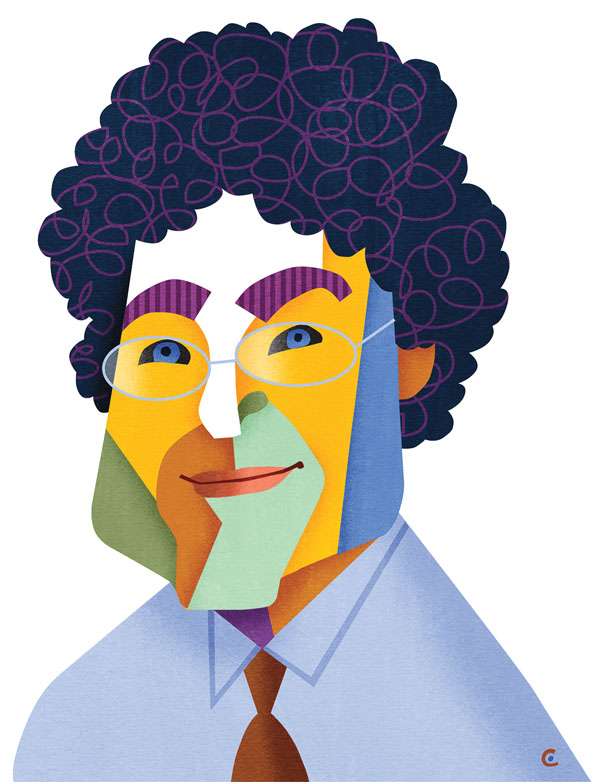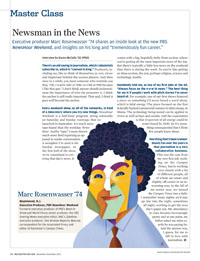Books & Recordings
 (Photo: David Cowles for Rochester Review)
(Photo: David Cowles for Rochester Review)There’s an old saying in journalism, which I absolutely subscribe to, which is “content is king.” Producers, including me, like to think of themselves as very clever and important behind-the-scenes players. And then once in a while, you meet someone who reminds you that, “Oh, I watch ABC or NBC or CBS or PBS because I like that guy.” I don’t think anyone should underestimate the importance of who the presenter is. I think the anchor is still really important. That said, I think it goes well beyond the anchor.
Every weekend show, at all of the networks, is kind of a laboratory where you try new things. NewsHour Weekend is a half-hour program, airing nationally on Saturday and Sunday evenings, that we launched in September. It’s much more tape-based than the weekday NewsHour. And by “tape,” I mean there’s much more field reporting as opposed to studio conversation. A metaphor I’ve used is the Sunday newspaper. In the first half of the show, we’re committed to covering that day’s news. It comes with a big, hopefully hefty front section, where you’re getting all the most important news of the day. But there’s typically a little less news on the weekend than there is during the week. So you’re also getting an ideas section, the arts, perhaps religion, science and technology, health.
Marc Rosenwasser ’74
Maplewood, N.J.
Executive Producer, PBS NewsHour Weekend
Formerly executive producer of PBS’s Need to Know and World Focus; senior producer, the CBS Evening News; executive editor, NBC’s Dateline; executive producer, Tom Brokaw Reports; Moscow correspondent for the Associated Press; and editor of Rochester’s Campus Times.
Somebody told me, at one of my first jobs at the AP, “Always focus on the n-e-w in news.” The best thing for me is if people I work with pitch stories I’ve never heard of. For example, one of our first shows featured a piece on something I’d never heard a word about, which is tidal energy. The piece focused on the first federally backed commercial venture in tidal energy, in Maine. The technology being tested can be applied in rivers as well as bays and oceans. And the expectation is that 15 percent of all energy could be water-based by 2030. So it’s something consequential that I think few people know about.
One thing that’s been tremendously fun over the years is that journalism is a very collaborative business. This was the case from my very first job, working on the Campus Times. You’re working very closely with a lot of different people, all of whom are smart and slightly off-center in an interesting way. In the fall of my senior year, we turned the Campus Times into a daily. I remember many nights we’d stay up late into the night, sometimes all night, working to get the next day’s paper out. My attendance in class became increasingly spotty and at one point, my father asked me what exactly he was paying for. And the answer was, I guess, for me to fall in love with journalism.

